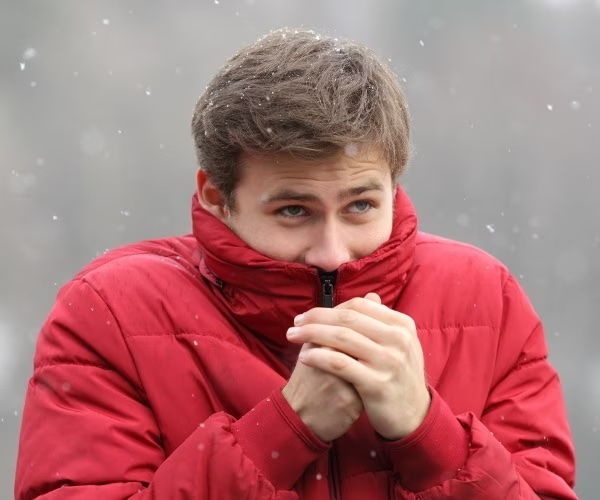7 Cold Weather Myths Debunked

Dreamstime
By Lynn C. Allison From Newsmax
If the weather outside is frightful there’s no reason to panic. You can still exercise, take showers and head outdoors without fear of getting sick. Cold weather myths abound because people do tend to get sick more often in winter, but it’s more about gathering with others indoors than the low temperatures that lead to illness.
Robert Lichfield, a family medicine specialist from Spokane, Washington, says it is the correlation between catching a cold and cold weather that’s partly to blame.
“I think in people’s minds it’s almost irresistible,” he tells USA Today. “It’s cold outside and now I’ve got a cold. The temperature itself does not make us more likely to get sick, but we are more likely to be sick in the winter because we are inside together more.”
Here are more myths:
• Leaving the house with wet hair can make you sick. “The short answer is no,” says Lichfield. Diane Pappas, a professor of pediatrics at the University of Virginia School of Medicine adds, “Colds are caused by viruses and not caused by going outside with wet hair.”
• Swimming in the winter increases your risk of colds. Another myth, says Lichfield, adding that “any good, healthy, safe physical activity makes us less likely to get sick because it actually stimulates our immune system.”
• Drinking alcohol warms you up. Lichfield says that drinking too much alcohol in the winter can be dangerous because it dulls our senses, including our perception of cold and pain. This could prevent our central nervous system from recognizing that temperatures have dropped and put us at risk of hypothermia.
• You don’t need to wear sunscreen in the winter. According to the American Academy of Dermatology you need to wear sunscreen year round. In fact, the risk of sunburn can increase when engaging in popular winter activities where one is exposed to higher altitudes and additional UV light reflected from the snow.
• You lose 90% of your body’s heat through your head. Not true, says Lichfield. Since our heads have a rich source of blood supply, there is a lot of heat moving around the head, says the expert. The head also has more nerve endings than some other parts of the body, so we feel the cold immediately. We lose about the same amount of body heat throughout its surface area. So, we lose about 10% of heat through the head, because the head represents 10% of our body’s surface area.
• Eat snow if you are stranded and thirsty. Hopefully this won’t happen but if it does, know that the risk of eating snow is that it will very quickly lower your body temperature, says Lichfield. “It’s not necessarily comfortable but you can go without water for several days and usually do OK as far as surviving,” he says. You really need to preserve the heat in your body, so eating snow will sabotage your well-being.
• You don’t need to drink water in cold weather. You can still get very dehydrated during the winter months because the air is usually so dry. Daryl Gioffre, a board-certified chiropractor, and nutritionist, says: “Your goal should be to drink half your body weight in ounces daily. If you weigh 150 pounds, you need to drink 75 ounces of water daily.” Adding a slice of lemon or lime to improve the taste and alkalinity, or a pinch of pink Himalayan salt, is helpful. Gioffre adds that in winter, soups, and broths, such as mineral-rich bone broth, are excellent alternatives to stay hydrated. Pay attention to indoor heating systems that can dry out the air, leading to increased fluid loss through breathing. Using a humidifier can help maintain indoor moisture levels, while keeping you hydrated at the same time.
© 2024 NewsmaxHealth. All rights reserved.
For more on this story go to: NEWSMAX





